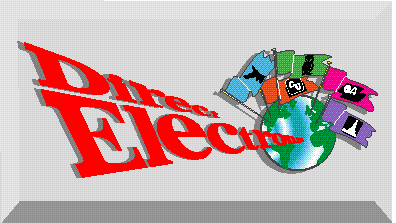In respect of all insurances there is an obligation on the policyholder to
inform the insurer of any material changes. A material change is one where
the insurance company would have been influenced in regard to its rates or
excesses had they been aware of the fact.
For example if motor insurance has a restriction that the driver is the
policyholder and his spouse (partner) only, and they now allow their teenage
son who has very little previous driving experience to drive, it is material, and the insurers should be told.
Similarly if a house is left unoccupied for more than 30 days it is usually
advisable to tell the insurer.
Apart from 'All Risks' insurance (which is usually expensive), this is
normally the widest insurance available. It differs from 'All Risks' in
that it specifies the perils which are insured such as fire, explosion,
lightening, earthquake, storm, flood, riot, civil commotion etc. 'All Risks'
covers just about everything other than certain perils which are excluded. The "Standard" comprehensive cover can usually be extended for an additional premium to include "Accidental" damage.
Comprehensive Cover usually includes extensions such as loss of rent or
cost of alternative accommodation, breakage of glass as well as liability to
the public for any damages for which the policyholder may become liable for
bodily injury or loss of or damage to property belonging to others.
It is sometimes possible to obtain cover for fire and theft only which is
less expensive.
Contents cover is basically restricted to the premises insured although the
cover is often extended for a limited amount to hotel bedrooms or other
houses.
If cover is required simply for losing something, or where theft cannot be
proved (for example in regard to watches, cameras or jewellery) it is wise to take out separate
insurance for Personal Belongings.
Most insurance companies require the policyholder to bear a specified first
amount of any loss. These are usually fairly nominal in normal cases -
around ú50 - ú100.
This does mean however that if the claim is for less than ú50 or ú100,
there will be no claim under the policy and if it is for ú200 it will be
reduced by the above amounts.
Compulsory excesses are usually increased in respect of motor for persons
under 21 years or if the licence has been held for less than 1 year.
Buildings and contents excesses could be increased if, for example, a
building was in a subsidence area.
Both forms of insurance tend to have increased excesses if there have been
several claims.
In regard to motor insurance most insurers will replace the vehicle with a new one if it
is severely damaged or stolen within a fairly short period of its being
purchased. Thereafter they will replace it with an equivalent vehicle.
In regard to home and contents, new for old cover can be obtained from
certain insurers. Thus if carpets or curtains are destroyed by fire, the
insurer will pay for new replacements (assuming they cannot be repaired),
providing the sum insured is for the full replacement value.
In both motor, and home and contents, where new for old is not provided,
the guiding principle is that the policyholder is entitled to be put in the
same position after the loss as before it occurred.
 Alarm Systems
Alarm Systems
 Brokers
Brokers
 Changes
Changes
 Claims History
Claims History
 Comprehensive Home and Contents Cover
Comprehensive Home and Contents Cover
 Comprehensive Motor Insurance
Comprehensive Motor Insurance
 Compulsory Excess
Compulsory Excess
 Discounts
Discounts
 Female Drivers
Female Drivers
 Mature Drivers
Mature Drivers
 Mileage
Mileage
 Monthly Premium Payment
Monthly Premium Payment
 New For Old
New For Old
 No Claims Discount
No Claims Discount
 No Claims Discount Protection
No Claims Discount Protection
 Occupation
Occupation
 Personal Belongings
Personal Belongings
 Road Traffic Legislation
Road Traffic Legislation
 Security Discounts
Security Discounts
 Two Cars Insured
Two Cars Insured
 Usage
Usage
 Further Queries (direct@londonmall.co.uk)
Further Queries (direct@londonmall.co.uk)

 Motor Insurance Quote
Motor Insurance Quote
 Life Assurance Quote
Life Assurance Quote  Private Medical Insurance Quote
Private Medical Insurance Quote
 Back to the London Mall
Back to the London Mall